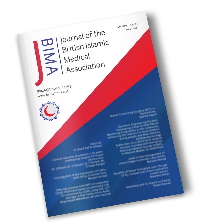
Q. Malik, R. Lunat, R. A. Akhter. London, UK.
Abstract of poster which was presented at the BIMA National Conference , Birmingham 7th December 2019
Introduction:
Transitioning from a final year medical student to a foundation year one doctor can be a stressful experience for many newly graduated doctors due to the uncertainty of the next stage in their careers, exacerbated by the media using phrases such as ‘Black Wednesday’. This is detrimental for both the junior doctors themselves and potentially can have an effect on patient expectations. The introduction of the ACE FY1 course aimed to provide support for newly graduated doctors hosted by foundation trainee doctors who had recently gone through the transition process themselves.
Methods:
ACE FY1 Induction Course was held at three locations, the largest event was held in London at University College London (UCL) run by volunteering junior doctors in foundation year training and UCL RUMS medical students. The course covered practical matters such as managing finances, provide an opportunity for simulation of an acutely unwell patient and discussion of prioritisation of bleeps, how to be a successful Muslim doctor, and a general Q&A session. Over 60 attendees were present at the course, and a feedback form was linked on the final slide of the presentation delivered at the last session, with a reminder email sent after the event. 50 attendees completed the feedback form. The data was collated using Survey Monkey and interpreted by two of the event organisers.
Results:
There was a significant increase in the number of attendees who felt confident and rated themselves above average in confidence after the event. 18% of attendees said they initially felt they had above average confidence prior to the course, compared to 64% of attendees after attending the course.
Conclusion:
We found that most of the attendees seem to find the ability to ask questions and interact with the facilitators and junior doctors as the most useful aspect of the course. Another area which attendees seem to find was confidence boosting was the way in which our facilitators had found their own tips and tricks to problems or barriers in the workplace- this allowed discussion as the attendees also appreciated the diversity of the background of the facilitators with positive personal interactions being most important. Another key aspect of the event was that attendees seemed to appreciate was the delivery of the content- i.e. the focussed nature of simulation and the opportunity to practice skills, however they also valued the content itself. An example of this was the theme of Islam itself- attendees appreciated the content and also the encouragement to practice their faith in the workplace. Ultimately we feel that the course was a useful tool in increasing the confidence of newly graduated doctors before starting their FY1as shown in both the quantitative and qualitative data.
References:
Monroe et al. New graduate doctors’ preparedness for practice: a multi-stakeholder, multicentre narrative study. BMJ Open. 2018 Aug 29;8(8):e023146. Kilminster et al. Preparedness is not enough: understanding transitions as critically intensive learning periods. Medical Education. 2011 Oct;45(10):1006-15.

